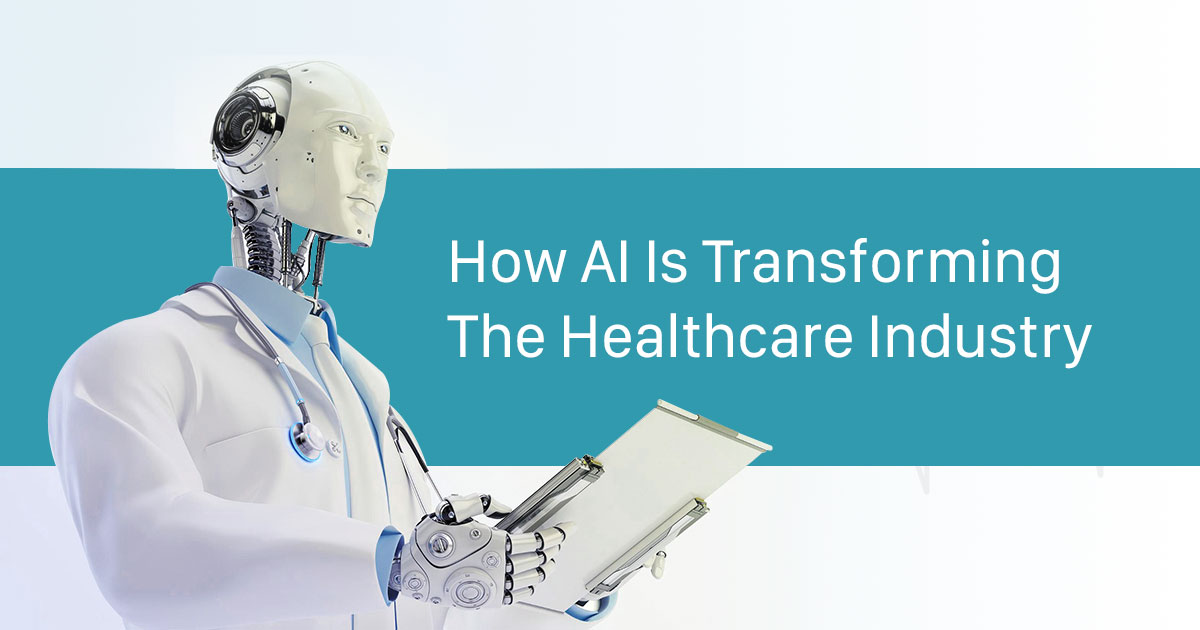As technology continues to evolve with the development of artificial intelligence, machine learning, chatbot, and robotics, this technology has also created a ripple of effects on the different sectors of society, such as healthcare and medicine. It brought changes for both patients and health workers that are benefactors of this development.

The digital age has transformed the way we understand the healthcare industry and have brought unprecedented changes for the betterment of health services. Find out more areas where these changes have occurred.
Diagnosis and Disease Detection
One of the most critical leverage of artificial intelligence in healthcare is in the field of disease diagnosis and detection. With the availability of data at hand, AI can help configure possible diseases associated with the patient’s symptoms for early detection of conditions such as cancer and heart problems. Here are some concrete ways AI helps health care workers.
- It helps standardized diagnosis– Pathologists usually scan skin problems by manually analyzing slides from the patient’s tissue culture. It takes a long time for diagnostic and sometimes leads to misdiagnosis. AI and deep learning help doctors analyze digital slides, which associate them with possible skin problems with high accuracy.
- Automating image analysis– AI and machine learning can help radiologist provide an immediate interpretation of MRIs and CT scan with minimal support for human supervision. It saves time and enables rapid response, especially for areas with limited health workers.
- Risk calculation- due to data mining and AI researches, the healthcare industry is now learning to understand how we can stop the disease before its symptoms can occur. The sector is trying to lean toward preventive measures by giving risk factors to a patient susceptible to certain illnesses based on genes and family’s medical history.
Simplifying Clinical documentation
One of the challenges of health care service is the doctor to patient ratio. This is an occurring problem in developing countries that affects not only the patient’s satisfaction but also proves difficult in medical documentation.
Natural language processing (NLP) which is a branch of artificial intelligence helps in bridging the gap between doctor to patient communication. It helps takes some of the workloads of clinicians so that they can better perform their other duties. Here are ways in which NLP helps;
- Voice Recognition- Instead of writing and typing, medical documentation trough actual speaking can now be de stored as a word document through voice recognition.
- Automated Reporting for the registry – NLP allows standardized documentation of patients for medical reporting. This is also crucial for the development of epidemiological studies.
Virtual Health Assistants
Instead of reacting to a patient’s illness after the diagnosis, preventive medication has now been the gold standard of the digital world. This has been led by the utilization of medical virtual assistance through chatbot powered by AI. Medical Virtual Assistant (MVA) help patients by keeping them on track in term of their health goals and even monitoring their medication schedule. Here are some services that chatbot offers;
- It can answer most medical-related inquiries for its users.
- It monitors and reminds the patient about their medication
- It provides medical advice when experiencing symptoms of common illnesses.
- It can harbor communication using the chat section augmented with AI knowledge.
Discovery of New Drugs and Therapies
Analysis of large databases allows AI to look for new solutions for severe diseases such as HIV and Ebola virus. The utilization of AI and NLP will enable researches to simulate conditions that allow verification of new treatment or therapies for different diseases. It increases efficiency and success rate when testing new drugs and medicines.
Developments in Reproduction Strategy
With the help of machine learning, robust analysis can now be used to predict the chances of miscarriage and stillbirth. Processing and analyzing millions of data have been one of the greatest advantages that AI and machine learning have imparted.
Computers now can process HSG results, women’s age, weight, and medical condition to predict the possible outcome of the mother’s birth. It can also provide possible recommendations that the mother can follow for increasing the chances of successful deliveries
Measuring Healthcare Quality
NLP system allows a robust way of evaluating healthcare providers and measuring physicians’ performance. The product of this analysis helps the healthcare system improves the health services they provide for their patients. It can also monitor possible errors in the service that the patient received. Thus, the healthcare system can now work on improving the gaps in their services and save more lives.
Diagnosis of Mental Illness
Difficulty in assessing mental illness has been a stigma of the healthcare industry for a long time. Fortunately, the development of Ai and NLP has opened new avenues in improving the detection and diagnosis of mental problems. Mental illness, behavioral and developmental problem has now been being cared for with the use of AI algorithms and automated interpretation of MRI images.
AI has paved the way to create research that aims to model the course of mental illnesses and predict the course of action needed by the patient. It helps psychiatrists provide an accurate diagnosis and help the patient combats symptoms of mental problems.

